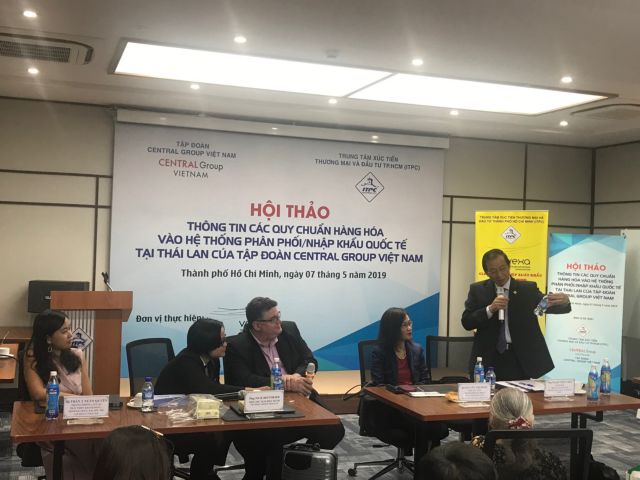Despite having high-quality products, Vietnamese exporters need to pay more attention to brand building and market research to enter Thailand’s lucrative markets.

Despite having high-quality products, Vietnamese exporters need to pay more attention to brand building and market research to enter Thailand’s lucrative markets, experts said at a conference held o Tuesday in HCM City.
The event was held to discuss ways businesses can become part of the international distribution network of Thailand’s Central Group.
Nguyen Tuan, deputy director of the Investment and Trade Promotion Centre (ITPC), said the two countries have ample trade opportunities as members in ASEAN, but Vietnamese brands struggle to enter Thailand’s distribution network while Thai brands are popular in Viet Nam.
Nick Reitmeier, deputy executive chairman of Foodhalls International Food & Alcohol Buying at Central Food Retail Co, Ltd. under the Central Group, said the company wanted to import more high-quality Vietnamese goods.
“Viet Nam has a lot of high quality products, but there is a lack of knowledge about such products in Thailand, as well as brand building from Vietnamese businesses,” he said.
He said that Vietnamese businesses must do thorough research about the Thai market and realise that famous brands in Viet Nam may not have the same popularity in Thailand.
Viet Nam exports many high-quality raw materials for foreign businesses, but Vietnamese branded products are not well-known, he noted.
Vietnamese businesses should differentiate themselves from domestic brands in Thailand, communicating their high quality to Thai consumers and paying more attention to package design, he added.
Cao Minh Sang, founder of HCM City’s Santa Food Group, said that Vietnamese businesses have great potential in Thailand, and that Vietnamese produce, especially coffee and cashews, can compete with Thai products.
More and more businesses in Viet Nam are realising the importance of better brand building and product promotion, he added.
Reitmeier said that most Vietnamese exports to Thailand enjoy favourable import tax policies, but Vietnamese exporters have to follow several strict regulations.
For example, food items have to be approved by Thailand’s Food and Drug Administration (FDA), with fresh food also needing phytosanitary certification, and health or catch certifications.
The FDA processing time ranges from a few weeks to three or six months, while special product groups such as milk, baby food and beverages can take up to two years for approval.
Alcohol does not need to go through FDA, but there is high excise tax.
Thai labels containing FDA numbers are also required on products, with food items such as snacks, cakes, chocolate and frozen meals also requiring facts about nutrition.
The Central Group will organise a “Week of Vietnamese Goods in Thailand” event in September at Bangkok’s Central World, Thailand’s biggest mall, for Vietnamese businesses to promote their goods to Thai consumers.
The conference was held by ITPC with the Central Group Viet Nam, and attended by around 180 representatives from over 120 businesses. –VNS





